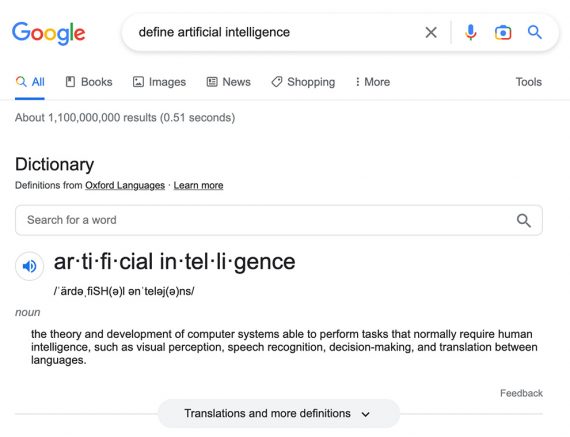Rampant speculation among the entrepreneurs has fueled fears that AI-powered lookup engines will produce a lot more responses than inbound links, offering a lot less traffic to millions of internet websites. The problem, though probable overblown, is well worth acknowledging.
On the a person hand, corporations ought to not panic. Synthetic intelligence will not wipe out natural look for website traffic this yr, this 10 years, or ever. But it is difficult to dismiss to spectacular level of popularity of ChatGPT and the AI-pushed arms race of main search engines — Google, Bing, and Baidu.
Therefore business enterprise leaders should really program for possible results.
I’ll address four of people prospects in this write-up:
- AI-pushed search reduces one-way links,
- A tactical shift in research motor optimization,
- Search final results develop into superior,
- The rise of new, specialised research engines.
AI Lookup Lessens Inbound links
Bing’s ChatGPT, Google’s Bard, Baidu’s Wenxin Yiyan, and related AI instruments aim on all-natural language responses. A human asks a dilemma, and AI makes an attempt to reply with a paragraph, not a connection.
This is arguably a attractive and reasonable path ahead for lookup engines. Google currently answers several queries via highlighted snippets at the best of research outcomes.
For illustration, ask Google to “define artificial intelligence,” and the best result is a dictionary’s verbiage. Google responses the question directly instead than sending the searcher to the dictionary web site.

Google responses queries — “define artificial intelligence” — in look for effects now, even prior to adding chat AI equipment.
In its Bard chat AI announcement, Google involved a gif illustration that was effectively the same as the dictionary definition. The graphic was someone typing, “What are the ideal constellations to appear for when stargazing?” Bard’s reaction was a quick paragraph and four bullet details, followed by backlinks to external sites.
The reaction is analogous to voice research. AI chat research will depend on sites for responses, as does voice lookup. For this reason it’s not an conclusion to natural research website traffic but fairly a transform in optimizing a site for it.

The illustration gif from Google’s announcement displays how Bard AI could do the job. Click impression to activate the gif.
AEO
That transform could be “answer motor optimization” — AEO.
AEO aims to make improvements to a website’s rating on answer-focused look for platforms, these kinds of as voice, digital assistants, and now AI chat.
This variety of Search engine optimisation has existed for decades. It is related to what lots of organizations do presently: Determine prospects’ questions and response them in a way that AI-driven national language processors have an understanding of.
For instance, ChatGPT interacts with users conversationally. It is common and exciting due to the fact it understands human queries, which (usually) qualified prospects to superior benefits. So websites optimizing for ChatGPT target on purely natural language queries instead than keyword phrases or even entities.
As a result AEO is not new but rather a adjust in emphasis and competitiveness — the search success could consist of constrained hyperlinks to exterior sites, and an reply could possibly occur from a solitary source.
Effects Get Much better
Even with marketers’ issues, AI-enabled research could radically improve traffic to quite a few web sites.
AI-run lookup engines will attempt to supply far more accurate and pertinent results than past variations. This emphasis on accuracy and relevance might raise natural and organic visitors for web-sites with the most appropriate material or the greatest at AEO.
In this sense, AI lookup is not a difficulty but an option.
New Look for Engines
Assume additional AI-driven research engines.
ChatGPT has captured the market’s interest. End users like the resource. And business owners see the promise of market lookup engines.
Prior to the explosion in AI advancement, an ecommerce site could enhance for Google and be profitable. But AEO for numerous channels could be the norm if lookup engines proliferate.
